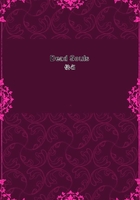
第52章
Chichikov's amusement at the peasant's outburst prevented him from noticing that he had reached the centre of a large and populous village; but, presently, a violent jolt aroused him to the fact that he was driving over wooden pavements of a kind compared with which the cobblestones of the town had been as nothing. Like the keys of a piano, the planks kept rising and falling, and unguarded passage over them entailed either a bump on the back of the neck or a bruise on the forehead or a bite on the tip of one's tongue. At the same time Chichikov noticed a look of decay about the buildings of the village.
The beams of the huts had grown dark with age, many of their roofs were riddled with holes, others had but a tile of the roof remaining, and yet others were reduced to the rib-like framework of the same. It would seem as though the inhabitants themselves had removed the laths and traverses, on the very natural plea that the huts were no protection against the rain, and therefore, since the latter entered in bucketfuls, there was no particular object to be gained by sitting in such huts when all the time there was the tavern and the highroad and other places to resort to.
Suddenly a woman appeared from an outbuilding--apparently the housekeeper of the mansion, but so roughly and dirtily dressed as almost to seem indistinguishable from a man. Chichikov inquired for the master of the place.
"He is not at home," she replied, almost before her interlocutor had had time to finish. Then she added: "What do you want with him?""I have some business to do," said Chichikov.
"Then pray walk into the house," the woman advised. Then she turned upon him a back that was smeared with flour and had a long slit in the lower portion of its covering. Entering a large, dark hall which reeked like a tomb, he passed into an equally dark parlour that was lighted only by such rays as contrived to filter through a crack under the door. When Chichikov opened the door in question, the spectacle of the untidiness within struck him almost with amazement. It would seem that the floor was never washed, and that the room was used as a receptacle for every conceivable kind of furniture. On a table stood a ragged chair, with, beside it, a clock minus a pendulum and covered all over with cobwebs. Against a wall leant a cupboard, full of old silver, glassware, and china. On a writing table, inlaid with mother-of-pearl which, in places, had broken away and left behind it a number of yellow grooves (stuffed with putty), lay a pile of finely written manuscript, an overturned marble press (turning green), an ancient book in a leather cover with red edges, a lemon dried and shrunken to the dimensions of a hazelnut, the broken arm of a chair, a tumbler containing the dregs of some liquid and three flies (the whole covered over with a sheet of notepaper), a pile of rags, two ink-encrusted pens, and a yellow toothpick with which the master of the house had picked his teeth (apparently) at least before the coming of the French to Moscow. As for the walls, they were hung with a medley of pictures. Among the latter was a long engraving of a battle scene, wherein soldiers in three-cornered hats were brandishing huge drums and slender lances. It lacked a glass, and was set in a frame ornamented with bronze fretwork and bronze corner rings. Beside it hung a huge, grimy oil painting representative of some flowers and fruit, half a water melon, a boar's head, and the pendent form of a dead wild duck. Attached to the ceiling there was a chandelier in a holland covering--the covering so dusty as closely to resemble a huge cocoon enclosing a caterpillar. Lastly, in one corner of the room lay a pile of articles which had evidently been adjudged unworthy of a place on the table. Yet what the pile consisted of it would have been difficult to say, seeing that the dust on the same was so thick that any hand which touched it would have at once resembled a glove.
Prominently protruding from the pile was the shaft of a wooden spade and the antiquated sole of a shoe. Never would one have supposed that a living creature had tenanted the room, were it not that the presence of such a creature was betrayed by the spectacle of an old nightcap resting on the table.
Whilst Chichikov was gazing at this extraordinary mess, a side door opened and there entered the housekeeper who had met him near the outbuildings. But now Chichikov perceived this person to be a man rather than a woman, since a female housekeeper would have had no beard to shave, whereas the chin of the newcomer, with the lower portion of his cheeks, strongly resembled the curry-comb which is used for grooming horses. Chichikov assumed a questioning air, and waited to hear what the housekeeper might have to say. The housekeeper did the same. At length, surprised at the misunderstanding, Chichikov decided to ask the first question.
"Is the master at home?" he inquired.
"Yes," replied the person addressed.
"Then were is he?" continued Chichikov.